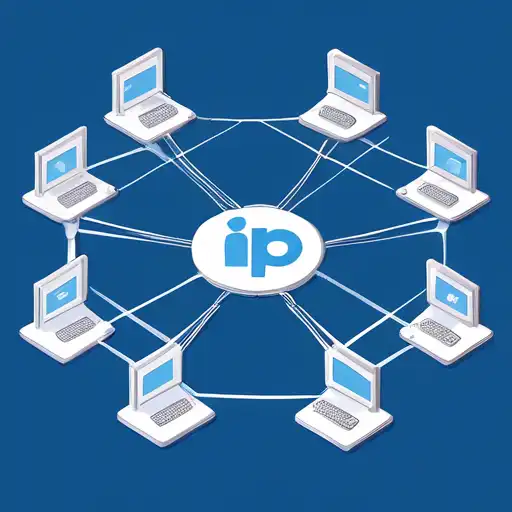Introduction to IP Addresses
In the digital world, IP addresses play a crucial role in connecting devices across the internet. Understanding the basics of IP addresses is essential for anyone looking to grasp how networks operate. This guide will walk you through the fundamentals of IP addresses, their types, and their importance in networking.
What is an IP Address?
An IP (Internet Protocol) address is a unique identifier assigned to each device connected to a network. It allows devices to communicate with each other by sending and receiving data. Think of it as the digital equivalent of a home address for your device.
Types of IP Addresses
There are two main types of IP addresses: IPv4 and IPv6. IPv4 addresses are the most common and consist of four sets of numbers separated by dots (e.g., 192.168.1.1). Due to the limited number of IPv4 addresses, IPv6 was introduced, offering a much larger address space.
- IPv4: 32-bit address, supports up to 4.3 billion unique addresses.
- IPv6: 128-bit address, supports a virtually unlimited number of addresses.
How IP Addresses Work
When you type a website URL into your browser, your device uses the Domain Name System (DNS) to translate the domain name into an IP address. This IP address is then used to locate and connect to the website's server, allowing you to access the site.
Static vs. Dynamic IP Addresses
IP addresses can be either static or dynamic. A static IP address remains constant, making it ideal for hosting websites or services. On the other hand, a dynamic IP address is assigned temporarily by a DHCP server and can change over time, which is common for residential internet connections.
- Static IP: Never changes, used for hosting.
- Dynamic IP: Changes periodically, assigned by ISP.
Why IP Addresses Matter
IP addresses are the backbone of internet communication. Without them, devices wouldn't be able to find or talk to each other. They also play a role in security, as they can be used to identify the location of a device or block malicious traffic.
Conclusion
Understanding IP addresses is fundamental for anyone interested in networking or the internet. Whether you're setting up a home network or pursuing a career in IT, knowing how IP addresses work will give you a solid foundation. For more advanced topics, consider exploring subnetting and network security.
For further reading on networking basics, check out our guide on Networking Fundamentals.
